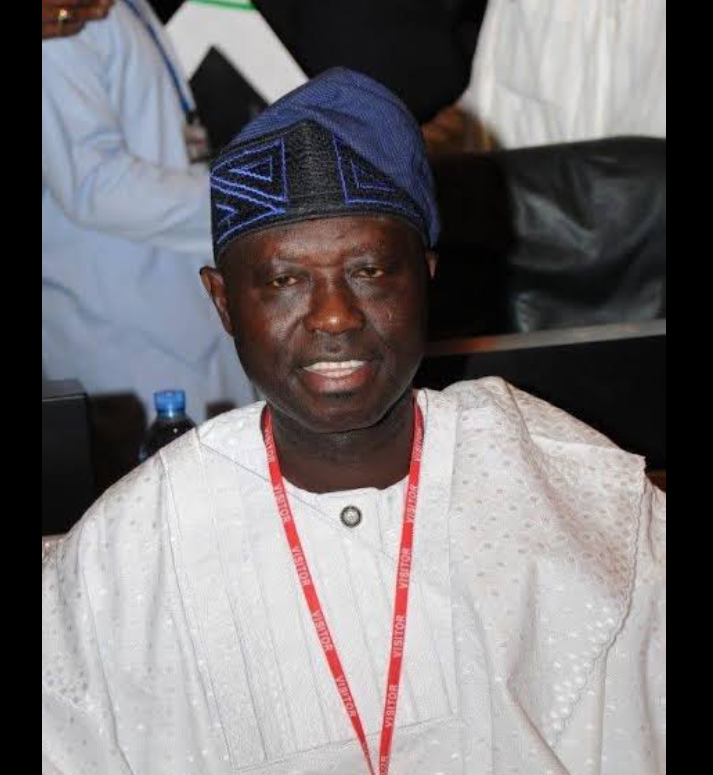

In a viral moment that has captured the attention of Nigerians everywhere, a brief exchange between Federal Capital Territory (FCT) Minister Nyesom Wike and a calm, composed military officer has sparked a national conversation about leadership, integrity, and power. What began as a tense confrontation quickly turned into a defining lesson in discipline when the unnamed officer, accused of being a “fool” by the minister, simply replied, “I’m not a fool, sir. I have integrity.” That single statement, quiet yet thunderous, shifted the entire tone of the encounter and has since earned the soldier admiration across social media.
The incident, which was reportedly filmed during Wike’s attempt to access a disputed piece of land in Abuja, has now become the talk of the nation. The viral clip shows the fiery and controversial former Rivers State governor clashing with security personnel who were carrying out their duties. While Wike, known for his brash personality and fiery temper, raised his voice and flexed his political muscle, the officer remained composed—unmoved by the minister’s outburst and focused on his duty.
Prominent journalist and broadcaster Rufai Oseni was among the first to publicly react to the footage, and his words have since echoed across the internet. Taking to X (formerly Twitter), Oseni wrote: “That officer deserves a national award. Calm, firm, and collected while Wike was busy behaving like a TikTok skitmaker. Wike called him a fool, and the soldier simply replied, ‘I’m not a fool, sir. I have integrity.’ That line alone finished the argument. You could almost hear sense leaving Wike’s body.”
Oseni’s post, laced with both humor and truth, resonated deeply with Nigerians tired of the arrogance often displayed by those in power. He went on to note how quickly some politicians abandon reason when confronted with accountability, writing, “When wisdom failed, Wike switched to the big man script: ‘You were in primary school when I graduated.’ That’s their emergency line when logic no longer works. The same playbook Umahi used on Rufai Oseni. Age has become their last remaining certificate.”
The clip, while short, revealed much more than a verbal spat. It showcased a symbolic moment—one where authority was tested by arrogance, and discipline triumphed over bluster. For many Nigerians, it was a refreshing reminder that integrity is not dependent on position or title, but on character. The soldier, whose name remains undisclosed, embodied the kind of quiet strength and professionalism that has become increasingly rare in a country where power often shields wrongdoing.
Observers have been quick to draw parallels between this incident and the larger political culture in Nigeria, where power is frequently brandished like a weapon rather than exercised with responsibility. Wike, a man known for his loud confrontational style, seemed to meet his match not in another politician but in a soldier who refused to be intimidated or dragged into an emotional exchange. Social media users flooded timelines with praise for the officer’s calmness, describing him as a “national treasure” and a “model of modern leadership.”
“That soldier represented everything our institutions should stand for—discipline, respect, and courage under pressure,” one user wrote. Another added, “For once, someone reminded Wike that power doesn’t make you right. Integrity does.”
Meanwhile, critics of Wike saw the episode as another example of his unchecked ego. As FCT Minister, Wike has built a reputation for his brash remarks, confrontational leadership style, and public outbursts—traits that have earned him both fans and foes. While he often positions himself as a no-nonsense leader who gets things done, this incident appeared to expose the other side of that coin: a man too quick to anger, too eager to assert dominance, even when it isn’t necessary.
Rufai Oseni’s description of Wike “behaving like a TikTok skitmaker” wasn’t just a dig—it was a reflection of how performative politics has become in Nigeria. Leaders now act out their authority in public, as though every encounter is a stage and every citizen an audience. Yet, in that moment, it was the soldier who turned the stage around. Without shouting or posturing, he reminded everyone watching that real authority doesn’t need to be screamed; it can be demonstrated through self-control.
The officer’s quiet defiance—rooted not in disobedience but in dignity—has struck a chord with millions. His refusal to match Wike’s energy became the ultimate act of resistance, a subtle yet powerful stand for principle over politics. Even as Wike resorted to belittling remarks like “You were in primary school when I graduated,” the soldier’s calm demeanor never wavered. It was a living example of the famous phrase: “When they go low, we go high.”
The larger message of the encounter goes beyond personalities. It highlights the urgent need for a cultural shift within Nigeria’s leadership structure—a reminder that respect must be earned, not demanded. Too often, public officials treat rank as a license for disrespect, forgetting that authority is a service, not a status symbol. The soldier’s poise exposed this imbalance, reminding the nation that humility is not weakness, and professionalism is not subservience.
The moment has also reignited debates about accountability and leadership ethics. Many Nigerians are now calling for recognition of the soldier’s conduct, with hashtags like #IntegrityOfficer and #AwardForDiscipline trending across X. Some have even suggested that the Nigerian Army officially commend him, not just for how he handled Wike, but for demonstrating the values the military is meant to uphold.
For Wike, however, the backlash has been unrelenting. The optics of a minister berating a disciplined officer at a time when Nigerians are grappling with widespread distrust of their leaders could not have come at a worse time. His critics have used the incident as further proof that the minister’s brand of politics—built on bravado and confrontation—may no longer fit a nation yearning for humility and reform.
In the end, this wasn’t just an exchange of words; it was a collision of worlds. On one side stood a politician embodying the old guard’s arrogance, and on the other, a soldier representing the quiet dignity of service. It was, as Rufai Oseni aptly put it, a moment when “power met principle.” And in that moment, principle won.
As the video continues to circulate, one thing has become clear: Nigerians are hungry for leaders who act with integrity, not ego. The soldier’s simple statement—“I’m not a fool, sir. I have integrity”—may well go down as one of the most profound lines of the year. It reminded the nation that character, not rank, defines a person’s worth.
When the noise fades and the headlines die down, this incident will be remembered not for Wike’s shouting, but for the calm defiance of a man who stood his ground with grace. In a country where too many bow before power, one soldier chose to stand tall—and in doing so, reminded everyone what true leadership looks like.


